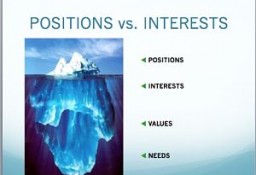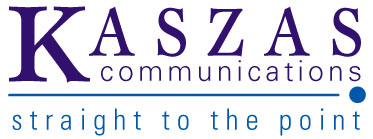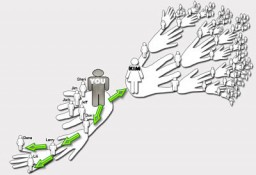As we get older, it is harder and harder to do work we don’t enjoy. Why? Because our energy gets drained by such work…leaving us less and less energy for what we really want to do. This is the Peter Out principle, not to be confused with the infamous Peter Principle.
I have written elsewhere about that one, the notion that people get promoted on the job because of their natural flair for doing certain kinds of work until they reach a level of incompetence because that new job doesn’t require any of their natural talents or motivations. Or, to put it in more simple terms, people advance in their career until they stop having fun.
Many others, of course, never find that fun to begin with. They fall into a job, or take a job because they needed to support their kids, or because they don’t know what else to do. Work, for them, often becomes a grind, a duty, or an obligation to pay bills, cover the mortgage, or take care of family. It’s our bargain with the devil of job security that leads to dissatisfaction or worse:
“I’m stuck. I’m shackled in the golden handcuffs. I have good leave benefits and look forward to a half decent pension, but I do not enjoy the work that I am doing. I crave that creative side that seems to be missing from my life and yet I never seem to get around to. I find that there needs to be a buffer of time to get the ‘creative juices’ flowing- time I don’t seem to have after-work commitments and commuting. I feel like I’m banging my head against a brick wall….” This is a complaint I hear again and again from men and women in mid-career or middle age. It is experienced by huge numbers of people.
This is the Peter-Out Principle in action. The origin of the phrase peter out is thought to be associated with the name St. Peter, which in medieval France may have morphed into slang for the male sex appendage. So, to peter out means to fall off in power, to dwindle away to…nothing.
As far back as 1962, psychologist Abraham Maslow discovered that one of the best–if not the best–way to achieve personal power is through work. “All human beings prefer meaningful work to meaningless work. If work is meaningless, then life comes close to being meaningless.” In his hierarchy of needs, Maslow was simply pointing out what we all know to be true: that work is not just about making money, it’s also about making meaning.
Doing our work well requires some competency, confidence, or power. When our enthusiasm for work fizzles out, fades away, we might say we are petering out. When we work just for money, our desire for meaning, for vitality, for life ebbs away, tapers off, melts away–it peters out!
When considering this truth, I can’t help but think of Hazel McCallion, the mayor of Mississauga, Canada’s 9th largest city, who first won office at age 57 and just retired at age 93. If she worked only for money, she’d have retired a long time ago. No one could accuse her of petering out! She is one example of many who prove it is never too late to find work that energizes you.
As a job change expert, my goal is to help you do so by identifying, defining and mobilizing your Aptitudes, Attitudes, and Appropriate Actions.













